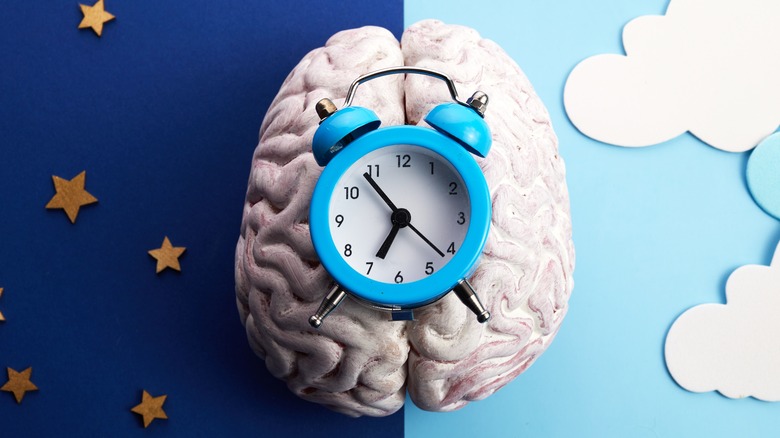This Sleep Condition May Actually Be Hurting Your Brain
Insomnia is among the most common sleep disorders that affect your ability to fall asleep or enjoy deep snooze, according to WebMD. It may be short-term (acute insomnia) because of temporary stress or could be long-term (chronic insomnia) which may last for a few weeks to months.
A wide majority of both adult and youth populations in the US experience this detrimental sleep condition. According to the Cleveland Clinic, an estimated 33-50% of people in the US have insomnia, of which up to 15% of cases are chronic insomnia. Sleeplessness has a lot to do with your lifestyle. If you have a bumpy mattress, go to bed late, or the bedroom is poorly ventilated, you may find it difficult to sleep properly every night. It's also critical to avoid using electronic gadgets before bedtime.
Science recommends a long night's rest of at least 7-8 hours to benefit from the restorative qualities of a fulfilling sleep. However, on average, people only snooze for a couple of hours every night. This results in an increased risk of long-term diseases such as diabetes, heart attack, dementia, stroke, hypertension, depression, and obesity (via Healthline).
How can sleep deprivation hurt your brain?
Every night while sleeping, your brain goes through numerous phases during a sleep cycle — primarily NREM and REM — that help refresh the systems and take a break from continuous functioning. During this time, your brain releases certain chemicals to boost your cognitive capabilities and improve your memory, per the Sleep Foundation. Thus, lack of sleep or a disturbed night can have a negative impact on your cognitive functions, making your brain tired and unable to focus.
It has also been pointed out by WebMD that not getting sufficient sleep during the night can impact learning abilities in children, resulting in poor performance at school. These students may find it harder to focus or stay awake during lessons. Similarly, a good night's rest is integral for improving memory recall for skills, such as playing piano or cooking.
Although researchers are still in the process of confirming human implications, a 2013 study published in Science suggests that during deep sleep, your brain flushes out harmful toxins. Many of these may ultimately increase the risk of brain diseases, like Alzheimer's or dementia. Both neurological diseases are associated with progressive loss of memory and commonly occur in people in the middle or elderly age group.


